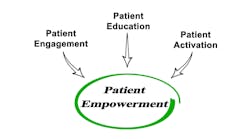Uber has launched a new service, Uber Health, that provides a ride-hailing platform specifically to healthcare providers. Uber aims to partner with healthcare organizations to provide reliable, comfortable transportation for patients, even for riders who don’t have a smartphone or the Uber app.
Every year, 3.6 million Americans miss doctor appointments due to a lack of reliable transportation, according to Uber, citing the Community Transportation Association, and no-show rates are as high as 30 percent nationwide. And while transportation barriers are common across the general population, these barriers are greatest for vulnerable populations, including patients with the highest burden of chronic disease.
The Uber Health dashboard allows healthcare professionals to order rides for patients going to and from healthcare appointments. The company also is launching an Uber Health API to enable integrations into existing healthcare products.
According to Uber, coordinates can schedule rides on behalf of patients, caregivers and staff to take place immediately, within a few hours, or up to 30 days in advance. This allows for transportation to be scheduled for follow-up appointments while still at the healthcare facility.
The service also enables access for patients without a smartphone as the rides can be scheduled through text message.
The platform also is HIPAA-compliant. The company says it worked with Clearwater Compliance, a leading HIPAA compliance company, to conduct comprehensive risk and compliance assessments. Uber Health will sign Business Associate Agreements (BAAs) with its healthcare partners.
Uber Health charges its healthcare organization customers only for the cost of individual rides, which are at par with what those rides would cost via the consumer app. Access to the dashboard and the reporting tools are included free.
More than 100 healthcare organizations in the U.S., including hospitals, clinics, rehab centers, senior care facilities and physical therapy centers are already using Uber Health as a part of the beta program that began last summer. Healthcare organizations involved in the pilot program include Adams Clinical, Blood Centers of the Pacific, LifeBridge Health, MedStar Health, Manhattan Women’s Health, NYU Perlmutter Cancer Center, ProActive Work Health Services and Yale New Haven Health.

